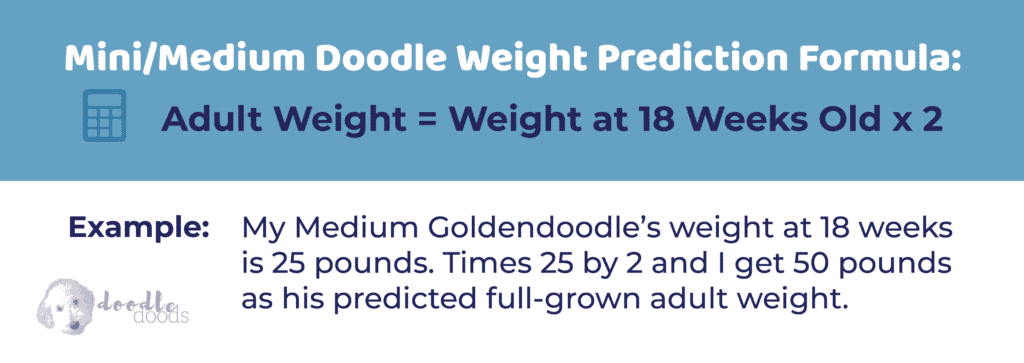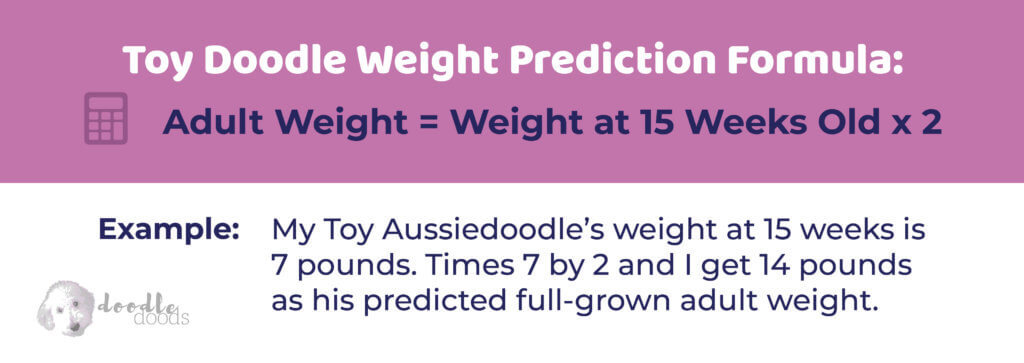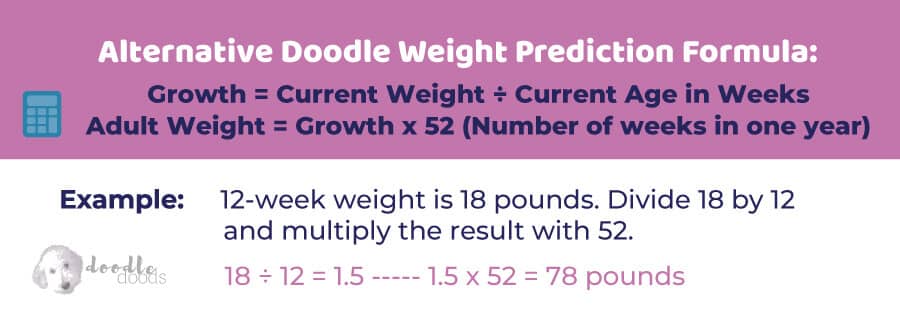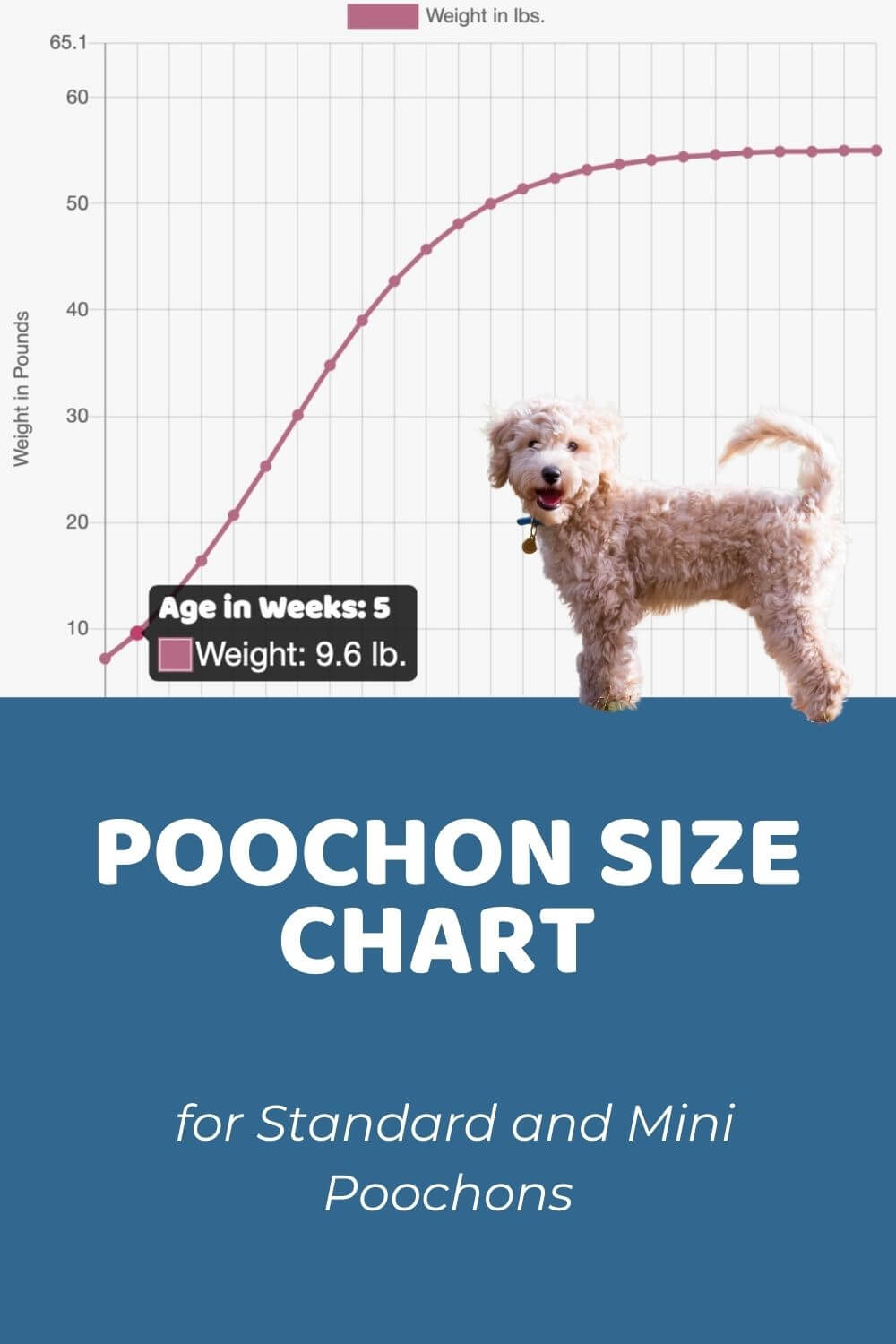If you’re looking for a cute Doodle on the littler end of the scale, then this might well be the one for you. Also known as Bichpoos, Bichon Poos, and Bichon Poodles, Poochons are a delightful combination of the cheerful, cream puff Bichon Frise and the clever, athletic Poodle. These beautiful, loving fluff balls make excellent companion pets for active individuals and large families alike. However, if space is a little limited, you might be wondering about the Poochon size – just how big Poochons get.
Well, the good news on that front is the Bichon Frise is classified as small, and when bred with either the similarly sized Miniature Poodle or the even tinier Toy Poodle, a little dog is absolutely guaranteed. For the specifics and ways to calculate your Poochon’s adult weight, keep scrolling.
The Different Types of Poochons
Playful, upbeat, and friendly, Poochons are smart and sensitive dogs who are easy to train, good even for inexperienced dog owners, and suitable for apartment living. The only two issues you may have are the longer Bichon coat can be a little high maintenance, and these dogs are prone to mouthiness if not trained correctly.
These highly sociable pups do best in a lively living environment where they get plenty of exercise and attention. Both parent breeds are super intelligent, meaning that Poochons require a fair bit of mental stimulation, too, and can learn all manners of tricks with ease. They tend to stick to those they love like Velcro, so they don’t do well when left alone for long periods.
Poochons are a little less established than other Doodle types. So, you are more likely to find first-generation ones than any others for now. These can be a little more unpredictable in terms of personality and appearance. Yet, the parent breeds’ comparative size makes a Poochons adult height and weight reasonably easy to predict.
For details on the different generations and what this means in terms of their genetic inheritance, see below:
| 1st Parent | 2nd Parent | % Bichon Frise* | % Poodle* | |
| F1 Poochon (first-generation) | Bichon Frise | Poodle | 50% | 50% |
| F1B Poochon (first-generation backcross) | F1 Poochon | Poodle | 25% | 75% |
| F1BB Poochon (first-generation backcross backcross) | F1B Poochon | Poodle | 12.5% | 87.5% |
| F2 Poochon (second-generation) | F1 Poochon | F1 Poochon | 50% | 50% |
| F2B Poochon (second-generation backcross) | F1 Poochon | F1B Poochon | 37.5% | 62.5% |
| F2B Poochon (alternate cross) | F2 Poochon | Poodle | 25% | 75% |
| F3 / Multigen Poochon | F1B Poochon or higher | F1B Poochon or higher | Varies | Varies |

Poochon Size Predictions
The two different sizes of Poochon are primarily linked to the parent Poodle: Miniature or Toy. While this is naturally easy to determine with first-generation dogs, things can get a little tricker beyond that. Any reputable breeder, though, should have a clear idea of the ancestry of their puppies.
| Standard Poochon | Mini Poochon | |
| Weight | 10-18 lbs | 6-10 lbs |
| Height | 10-15 inches | 8-10 inches |
| Age at Adult Size | 18 months | 12 months |
In terms of growth patterns, your Poochon, no matter their type, will grow rapidly in the first six months of their life. Regular Poochons will likely be at around 80-90% of their adult height by then, and Mini ones will quite possibly be full size. Girth and muscle weight takes a little longer, but your dog will be full-grown by 18 months for sure.
Speaking of, we’ve been collecting weight data from our Doodle Weight Prediction Calculator. The below Poochon size chart / graph shows the average weights by age (in weeks), per size of dog.
As of October 24, 2022, we’ve received over 2,000 accurate Poochon weight submissions through our calculator.
Keep in mind that all pups should be on a diet specially formulated for puppies. Moreover, with Poochons, you should consider a formula specially designed for small breed puppies. Make sure to check out our Doodle puppy food guides.
Standard Poochons
“Standard” Poochons typically reach half their full weight around 5 months and their adult weight at 18 months.
You can calculate their potential adult weight at 18 weeks by taking what they weigh at that age and multiplying it by two.

Mini Poochons
Mini Poochons often reach half their full weight around 3 to 4 months and their adult weight at 12 months.
You can calculate their potential adult weight at 15 weeks by taking what they weigh at that age and multiplying it by two.

A different formula you could use is:

At What Age Are Poochons Considered Fully Grown?
Poochons, as smaller dogs, don’t take all that long to reach their adult size. They will likely already be over 50% of the way there by the time they are 3 months old. At 6 months they should be at roughly their adult height. Beyond this, their growth will slow somewhat as they fill out into their adult shape.
How Big is a Full-Grown Poochon?
Depending on the Poodle parent, as well as where both parents stand on the breed standard size scale, your adult Poochon will be around 8 to 15 inches at the shoulder and weigh approximately 6 to 18 pounds. If you want a clearer idea of how big your Poochon might be at their full size, take a look at our excellent interactive Doodle puppy growth calculator.
Poochons are small but incredibly affectionate dogs. They enjoy spending time with their family, especially playing games and going on adventures. If you are thinking of adopting one, make sure you are prepared for just how much these teeny dogs will love you and need to spend time with you. Hopefully, the information provided here proves useful in helping you prepare for your new puppy.
Learn How to Care for Your Doodle Puppy!

Perfect for first-time Doodle parents, get ALL your questions answered, including questions new Doodle parents don’t even think to ask.
Plus, get $700 worth of Bonus Materials for FREE, including:- Doodle Parenthood Community and Support Group ($190 value)
- Doodle Puppy Growth Tracker ($20 value)
- EMERGENCY Cheatsheet: When To Call The Vet Immediately ($50 value)
- HELP! Button ($145 value)
- And SO MUCH MORE!
The information on this page is for informational purposes only. It is not intended to be a substitute for qualified professional veterinary advice, diagnosis, or treatment. Always seek the advice of your veterinarian or other qualified animal health provider with any questions you may have.


When can I breed my female Poochon?
January 11, 2022 at 6:01 am